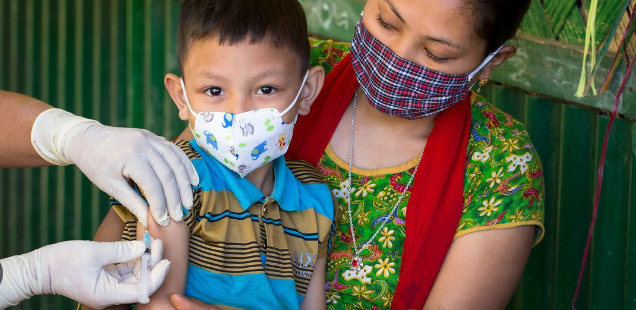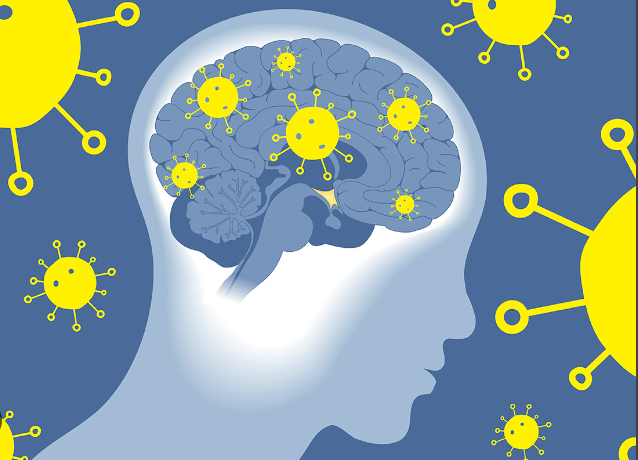Vaccination can protect young people—particularly teenagers—against long-term COVID, a new study finds.
Records of more than 1 million U.S. kids showed that the COVID jab can effectively shield kids from long-term health problems related to the infection, according to findings published Jan. 16 in the journal Pediatrics. Using electronic health data from 17 U.S. health systems, researchers estimated that about 4.5% of kids ages 5 to 17 probably have had long COVID. However, only 0.7% of the kids actually received a proper long-term COVID diagnosis.
“We were able to identify the rare effects of the virus and its impact on children by using clinical data from across health care networks,” said lead researcher Hanieh Razzaghi, director of analytics for the PEDSnet Data Coordinating Center at the Children’s Hospital of Philadelphia. Researchers noted in background notes that while adults are typically more impacted by initial COVID infections than children are, it has proven difficult to determine how prolonged COVID affects children. This is because long-term COVID symptoms can vary greatly, and the exact mechanism by which the virus produces them is yet unknown, according to the researchers.
Also read-Defense Secretary Austin Leaves Hospital Following Complications From Prostate Cancer Surgery

Long-term COVID symptoms can include brain fog, shortness of breath, gastrointestinal issues, pain, fatigue, chronic inflammation and heart problems. The overall vaccination rate among the children included in the study was 56%. Researchers found 35% effective protection against probable long COVID and 42% protection against diagnosed long COVID within a year of receiving the vaccine as a child. Protection was more robust for adolescents ages 12 to 17 (50%) than for children ages 5 to 11 (24%). Further, protection against long-term COVID was highest at six months after receiving the jab (61%), but waned to about 11% at 18 months post-vaccination. Children who were vaccinated after recovering from a COVID infection also appeared to benefit, with a vaccine effectiveness of 46% against probable long COVID.

Senior researcher Dr. Charles Bailey, an associate professor of pediatrics at the Children’s Hospital of Philadelphia, said, “This study provides us with important data showing the protective effects of the vaccine against long-haul COVID and suggests that this protection is mostly from preventing visible infections.” In a hospital news release, Bailey stated, “We hope this means that as vaccines are improved to be more effective against current strains of SARS-CoV-2, their protection against long-term COVID will get better, too.”

Frequently asked questions
What To Know About Long-Term COVID in Kids
Long COVID is a catch-all phrase describing symptoms that appear or persist after a person recovers from COVID-19. It’s one of the greatest mysteries in the medical field right now. The reason why some patients have weariness, dyspnea, or even more serious illnesses like heart problems weeks or months after contracting COVID-19 remains a mystery to medical professionals and researchers. Physician Kimberly Giuliano, MD, states, “We really don’t know where COVID comes from,” but medical professionals are developing a number of theories to try to explain it.
“It might be the amount of virus that somebody had in their system, their overall health, underlying genetics or health habits,” she says. “Long COVID is probably a combination of all of those factors, which is why it’s a little bit hard to pinpoint exactly what the cause is or prevent it. We can’t change our genes.”
What are some of the long-term effects of COVID-19 on children?
Kids can also experience long-term COVID symptoms. Dr. Giuliano says the most common ones seen in children include:
- Fatigue.
- Difficulty concentrating.
- Mood swings.
But one of the most challenging factors for parents and caregivers is that symptoms like these could signal that something else is wrong that has nothing to do with COVID-19.
“For example, a cough could be from COVID or it could be from a new illness,” says Dr. Giuliano. “Or it could be from another symptom or problem in its entirety.
“It’s the same thing with mood disturbances or difficulty concentrating,” she continues. “These are really common challenges that children who have—and haven’t—had COVID can experience at any point in their life.”
Also read-Poverty And Chronic Inflammation: A Deadly Combination For Americans
images source: Google
Disclaimer: The opinions and suggestions expressed in this article are solely those of the individual analysts. These are not the opinions of HNN. For more, please consult with your doctor




































